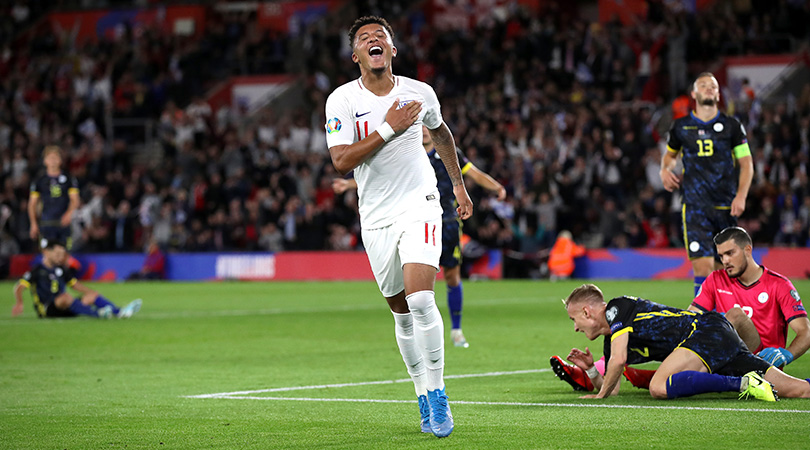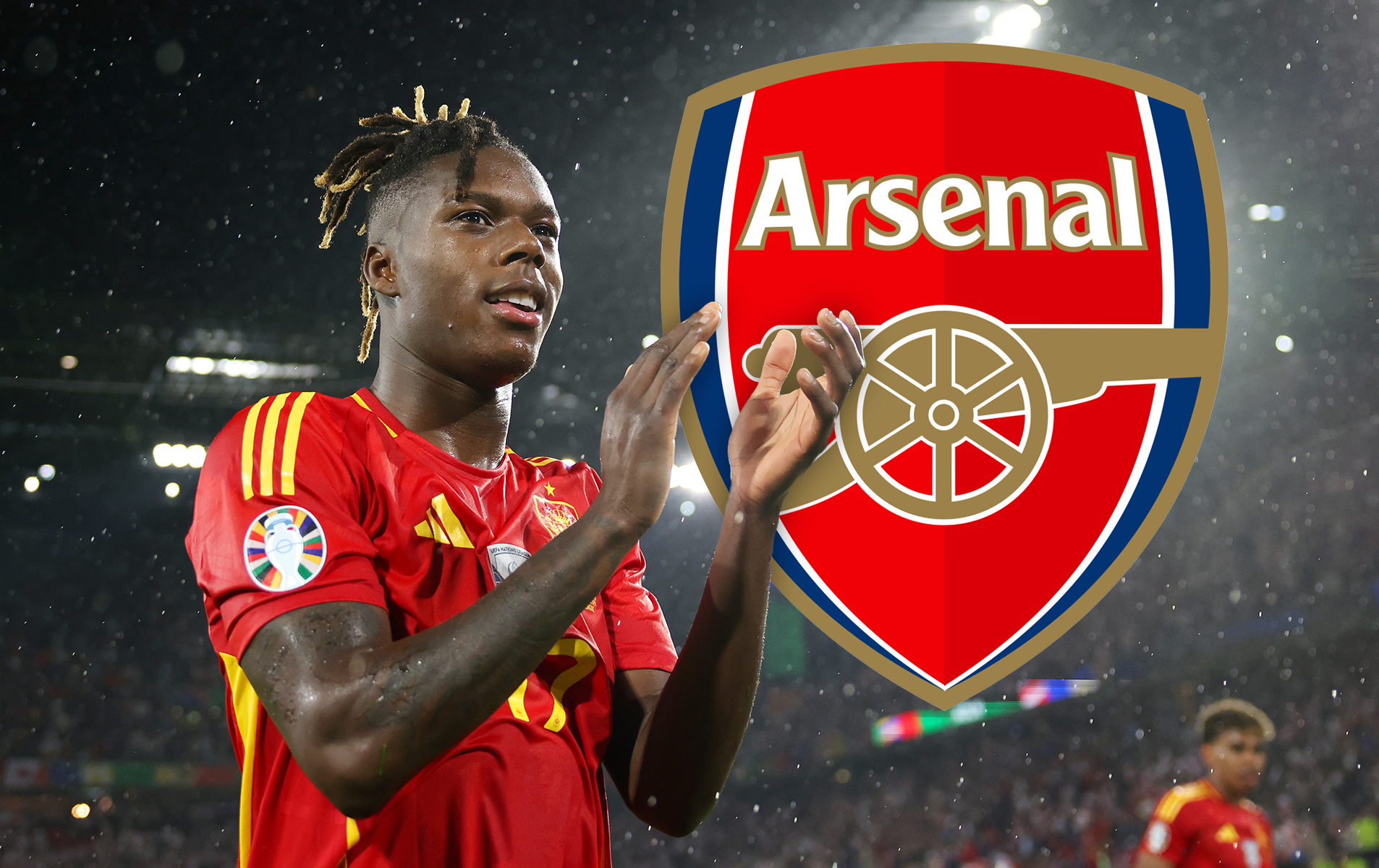What have we actually learned about England on their road to Euro 2020?
The Three Lions will reach another major tournament without a hitch... so what? Seb Stafford-Bloor on the crucial next steps

England are heading for Euro 2020. Victory over the Czech Republic in Prague tonight won’t guarantee their place in the final tournament, but it will give them what looks like an unassailable lead at the top of Group A.
Good news, but only relatively, because safe passage through the qualifying rounds has become almost a right for nations of England’s size. These long stretches are phoney wars now, preparation periods in all but name.
So we knew that England would qualify, but what have we really learned about them?
Bits and pieces. Not that it really needed confirming, but it’s been shown that Jadon Sancho’s extravagant talent translates into the international arena. It’s also documented that Raheem Sterling is a growing force on the global stage and that, under the right conditions, he can be one of the most destructive players on the continent.
Elsewhere, the positives aren’t so obvious. Not because there are many negatives instead, but rather that there isn’t a definitive sense of evolution about the side. Nearly a year-and-a-half on from that World Cup semi-final in Russia, is there any reason to believe – given the same one-goal lead against the same Croatian side under the same conditions – that they would fare any better?
Probably not. On the evidence of that defeat to Holland during the Nations League finals, definitely not. Internally, the England coaching staff will have digested what went wrong in that game – the paralysing loss of control, the inability to protect and advance the ball – but that learning doesn’t seem to have been applied yet... or at least not with any great effect.
England should win in Prague. This isn’t the Czech Republic of Jan Koller, Tomas Rosicky or Pavel Nedved and, as their 5-0 defeat at Wembley in March showed, their road back is a long one. But beyond points and goals on Friday night, what really matters for Gareth Southgate is that his side start showing some match craft – that they don’t just strong-arm opposition over whom they enjoy a technical superiority, but they’re able to really define the nature of their contests.
Get FourFourTwo Newsletter
The best features, fun and footballing quizzes, straight to your inbox every week.
Which they certainly didn’t again Kosovo.
That was a very entertaining game and much of the first half at St Mary’s played out like an English footballing dream sequence, with all that and precision. The second was a nightmare, though, and characterised the side’s ongoing weakness.
Yes, England are loaded with the kind of pace which makes them lethal on the counter. And without question, they’re packed with the talent that allows them to take advantage of mistakes. But they’re still prisoners of momentum. When a game turns, even against sides who aren’t obviously superior to them, England suffer. Their routes out of defence become muddled and their ability to create chances disappears.
As was the case against the Kosovans. And Croatia, Colombia, and Holland. And actually the Swiss too, despite that being little more than an end-of-season friendly. Those games were all characterised by significant periods during which England became the more passive of the two sides – when they were reactive, rather than proactive - and when they suffered as a result.
In fact, England only ever seem to possess two gears. They are either on top and dominant, or under severe pressure. There’s never an in-between period when they’re just calmly recalibrating, mentally catching their breath and plotting a way forward. They're always throwing wild punches or desperately covering up, trying to survive.

When England's WAGS went wild in Baden-Baden – and took the blame for World Cup 2006 failure
But the very best international sides are all equipped with that third setting. They all have excellent players too, but the distinguishing factor at that level seems to be how well games are managed – do teams panic when they fall behind; do their structures survive under pressure; does it take relatively little to provoke them into a mistake?
These are the questions which England don’t yet have answers for. If they’re ever to seriously challenge at an international tournament, then that will have to change. And that's a challenge which extends to Southgate, too. Can he make the kind of substitutions which create advantages at critical moments? Does he see the game in that way and does he possess the mind to be that kind of influence?
So he and his players will go to Prague in search of a win and in an attempt to put this latest qualifying effort to bed. But they’re also chasing an improvement which has so far been elusive: England must show that they're more than just brawn and endurance, and that they have the footwork and mind for the climb ahead.
While you're here, why not take advantage of our brilliant subscribers' offer? Get 5 issues of the world's finest football magazine for £5 – the game's greatest stories and best journalism direct to your door for less than a pint in London. Cheers!
NOW READ...
WATCH Premier League live stream 2019/20: how to watch every game from anywhere in the world
Seb Stafford-Bloor is a football writer at Tifo Football and member of the Football Writers' Association. He was formerly a regularly columnist for the FourFourTwo website, covering all aspects of the game, including tactical analysis, reaction pieces, longer-term trends and critiquing the increasingly shady business of football's financial side and authorities' decision-making.
